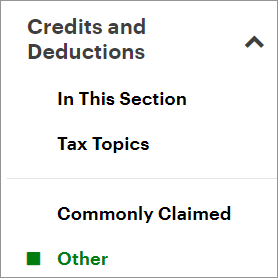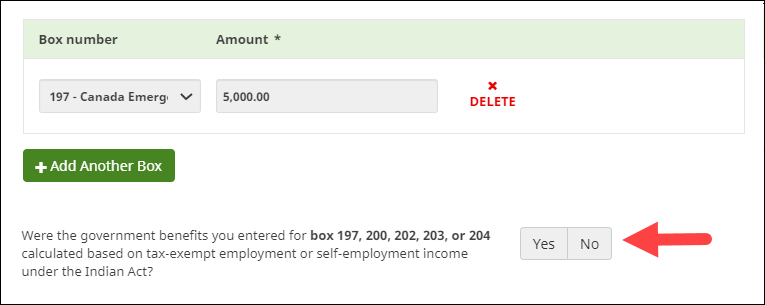I have Indian status
Important: We realize that many First Nations people in Canada prefer not to describe themselves as Indians. This term is only used because it has a legal meaning in the Indian Act.
As someone with Indian status, you’re generally subject to the same tax rules as any other Canadian. Unlike other Canadians however, your income might be eligible for tax exemption. This exemption applies to any income as long as it’s:
- earned on a reserve or
- from goods bought on or delivered to a reserve
The Canada Revenue Agency’s (CRA) website contains a great deal of information relating to tax exemption and various income sources, including:
- Employment income
- Employment-related income
- Business income and
- Interest and investment income
Keep in mind, you’ll still need to report your tax-exempt income on your return. You can do so on the T90: Income Exempt under the Indian Act form.
Note: Certain COVID-19 related benefits you received from the government (reported on your T4A slip and Québec RL-1 slip) that were based on your exempt employment or self-employment income under the Indian Act, will also be tax exempt. You’ll need to confirm on the T4A page (and RL-1 page, if you’re a Québec resident) that your COVID-19 benefits were based on exempt income. This doesn’t apply to the Canada Emergency Student Benefit (CESB) amounts reported on your T4A (box 198 and 199) and RL-1 (box O) slips; CESB amounts are taxable income.
T4A page
Your tax-exempt income amounts can be found on the various information slips you receive. For example, the following tax-exempt income amounts can be found on your T4: Statement of remuneration paid slip:
- Employment income (box 71)
- Self-employment income (box 88)
- Eligible retiring allowance (box 68)
- Non-eligible retiring allowances (box 69)
For more information, refer to section 87 of the Indian Act.
If you’re a member of a First Nations group that has a self-governing or tax agreement with the Canadian government, some of this information might not apply to you. We suggest you contact your First Nations government if you need more information.
Like the rest of Canada, the income earned by residents of Québec with Indian status might be exempt from taxation provided that this income is earned on a reserve.
As you can imagine, there are a number of conditions that you need to meet in order to take advantage of this tax exemption. First, you need to be a Registered Indian or have Indian status. Before you can be granted the related tax benefits, the CRA will need to confirm your status with Aboriginal Affairs and Northern Development Canada.
You’re eligible for registration as an Indian if:
- You were entitled to be registered before the change to the Indian Act in 1985
- You lost your Indian status because you married a non-Indian man
- Your mother and your father’s mother did not have Indian status before their marriage and you lost your status at age 21
- Your registration was successfully protested because even though your mother had Indian status, your father didn’t
- You lost your registration because your parents gave up their registration and First Nation membership through the process of enfranchisement* or
- You’re a child of someone whose situation is described in one of the examples above
*Before 1985, a person could choose to give up their Indian status for a number of reasons, including the right to vote in a federal election.
Follow these steps in H&R Block’s 2025 tax software:
- On the left navigation menu, under the Credits & deductions tab, click Other.

- Under the OTHER SITUATIONS heading, select the checkbox labelled Income exempt under the Indian Act (T90), then click Continue.
- When you arrive at the Income exempt under the Indian Act page, enter your information into the tax software.
- Indian Status (Aboriginal Affairs and Northern Development Canada website)
- Information on the tax exemption under section 87 of the Indian Act (CRA website)
- Indians (Revenu Québec website)
- What if I didn’t have income or all my income was tax exempt? (H&R Block Online help centre article)


